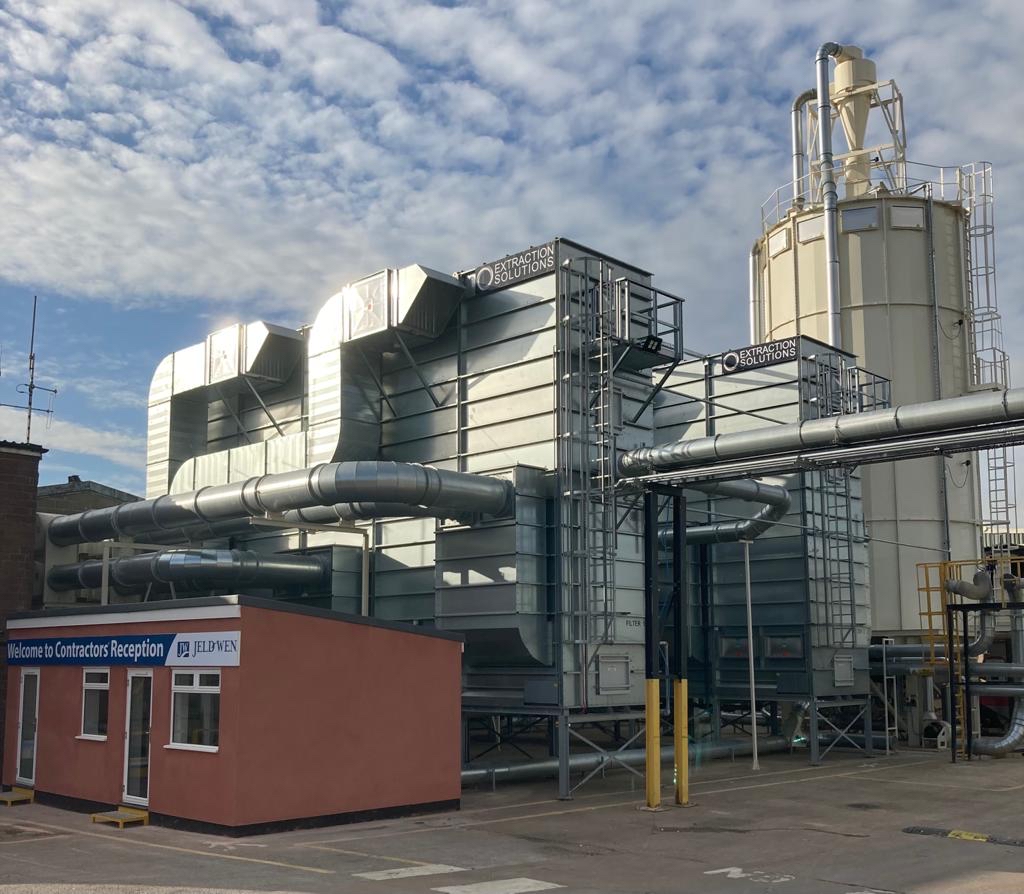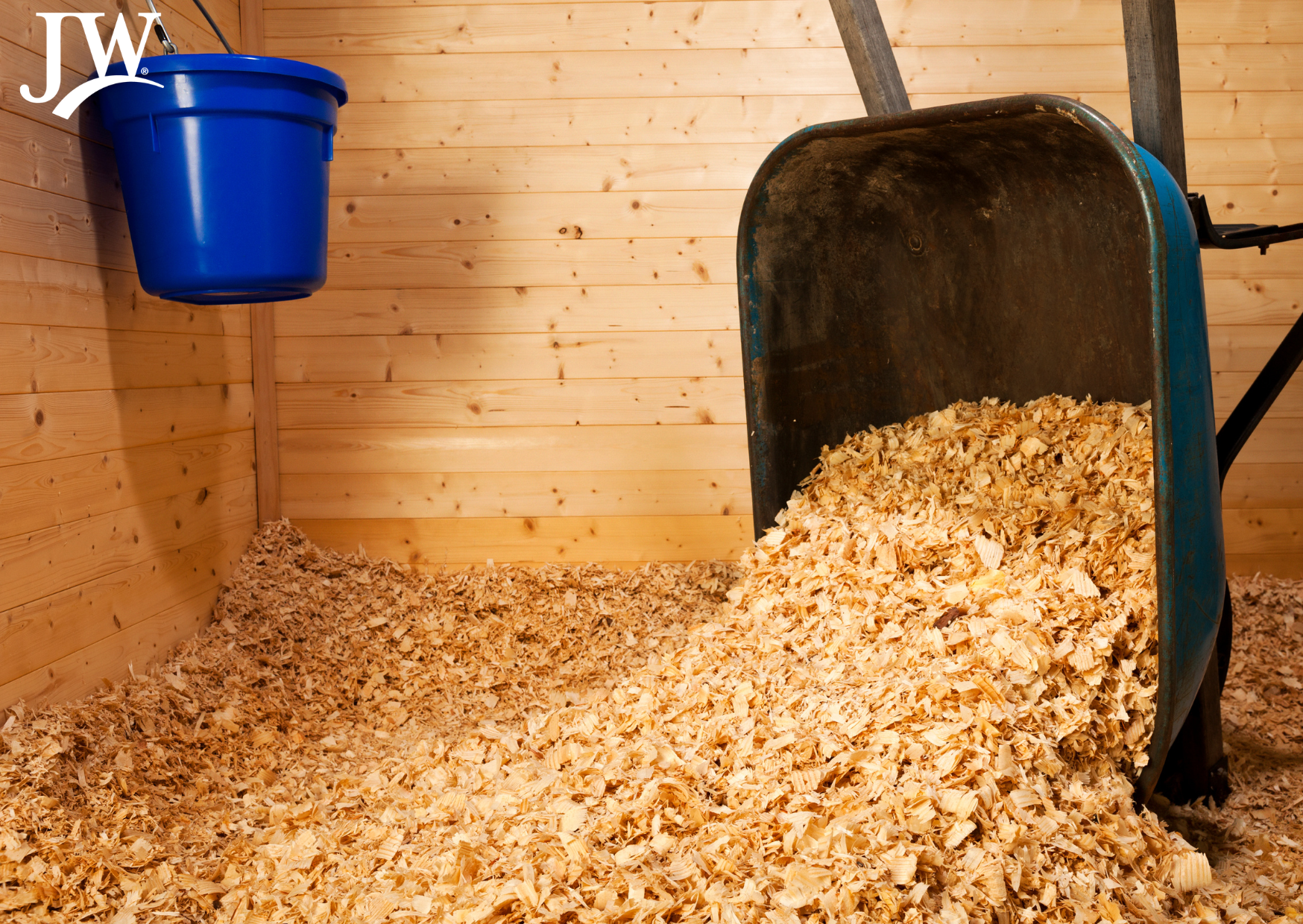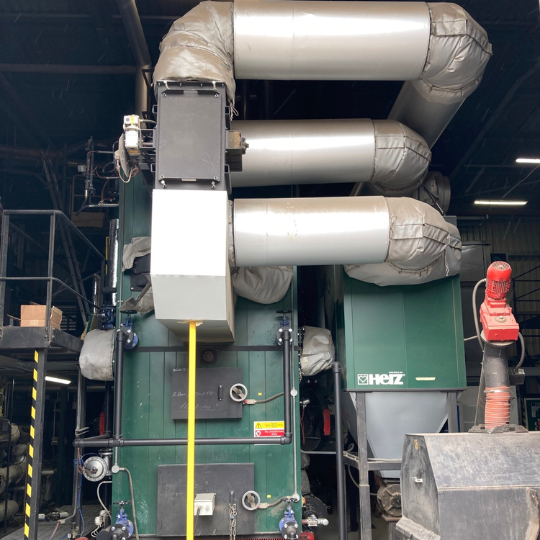
JELD-WEN’s door plant in Penrith, U.K., is making certain none of its wood waste actually goes to waste.
Whether on-site in one of two biomass boilers or next door at a forest products company that turns wood shavings into bedding for farm animals, the wood waste doesn’t have to travel far to be used.
“The exacting process of making high-quality doors naturally generates wood waste during production,” said Hamish White, plant manager. “We make up to 50,000 doors a week. When we trim the doors to size, we usually take 5 millimeters off each of the four sides. Rather than letting that go to waste, it goes through an extraction system and is fed into the boiler via a 60-ton silo.”
The Penrith facility’s two biomass boilers, installed in 2016, are an alternative, renewable energy solution to a conventional boiler. Each boiler will burn a ton of wood every hour. It’s all part of JELD-WEN’s commitment to achieving net zero waste and 100 percent renewable energy usage in its operations by 2050, goals outlined in our ESG report.


